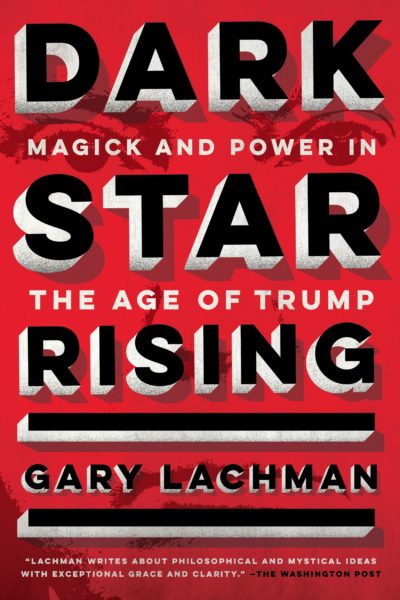The History Guy: History Deserves to Be Remembered
Published 29 Sep 2017The History Guy remembers how decolonization led to proxy war and the Battle of Dien Bien Phu in what is now known as Vietnam.
The episode discusses and presents historical photographs and film footage depicting events during a period of war, which some viewers may find disturbing. All events are described for educational purposes and are presented in historical context.
The History Guy uses images that are in the Public Domain. As photographs of actual events are often not available, I will sometimes use photographs of similar events or objects for illustration.
Patreon: https://www.patreon.com/TheHistoryGuy
The History Guy: Five Minutes of History is the place to find short snippets of forgotten history from five to fifteen minutes long. If you like history too, this is the channel for you.
Awesome The History Guy merchandise is available at:
https://teespring.com/stores/the-hist…The episode is intended for educational purposes. All events are presented in historical context.
#DienBienPhu #militaryhistory #thehistoryguy
November 1, 2021
Indochina and The Battle of Dien Bien Phu
If it wasn’t Black Magic, perhaps it was … Orange Magic!
In the weekly book post at Ace of Spades H.Q., OregonMuse reports on the case of poor Gary Lachman who is still apparently suffering the aftereffects of the Trump Years:
Author Gary Lachman is a man whom Donald Trump evidently broke very, very badly. Trying to process the reasons why the Bad Orange Man is living rent-free in his head 24/7, he came up with Dark Star Rising: Magick and Power in the Age of Trump, a book wherein he argues that there can be only one explanation for Trump’s astonishing election victory in 2016 and his domination of the political landscape: dark magic.
Get a load of this:
Within the concentric circles of Trump’s regime lies an unseen culture of occultists, power-seekers, and mind-magicians whose influence is on the rise. In this unparalleled account, historian Gary Lachman examines the influence of occult and esoteric philosophy on the unexpected rise of the alt-right.
AHAHAHAHAHAHAHAHA!!! You know this is going to be good:
Did positive thinking and mental science help put Donald Trump in the White House? And are there any other hidden powers of the mind and thought at work in today’s world politics? In Dark Star Rising: Magick and Power in the Age of Trump, historian and cultural critic Gary Lachman takes a close look at the various magical and esoteric ideas that are impacting political events across the globe. From New Thought and Chaos Magick to the far-right esotericism of Julius Evola and the Traditionalists, Lachman follows a trail of mystic clues that involve, among others, Norman Vincent Peale, domineering gurus and demagogues, Ayn Rand, Pepe the Frog, Rene Schwaller de Lubicz, synarchy, the Alt-Right, meme magic, and Vladimir Putin and his postmodern Rasputin.
As I said, Trump really, really broke this guy. And including Pepe the Frog in the same rogues’ gallery as Norman Vincent Peale is particularly choice.
There is only one way to fight the magic of the Bad Orange Man and his Evil Legions of Darkness: with magic of your own. Fortunately, there is a book that tells you how to do just that. I’m talking about Magic for the Resistance: Rituals and Spells for Change by Michael Hughes:
The resistance is growing, and it needs your help. This book provides spells and rituals designed to help you put your magical will to work to create a more just and equitable world … Magic for the Resistance offers a toolkit for magical people or first-time spellcasters who want to manifest social justice, equality, and peace.
Includes spells for: Racial justice, women’s rights, LGBTQ+ rights, antifascism, environmentalism, immigration, refugee support, nonviolence.
Apparently not included are spells for: setting fire to federal buildings, destroying small businesses, throwing Molotov cocktails at cops, beating up old men in wheelchairs, and shouting down public speakers who are saying things you don’t like.
Although, I guess they don’t really need magic to do those things.
Hughes is the creator of the internationally viral Mass Spell to Bind Donald Trump and All Those Who Abet Him, the largest and longest-running magical working in history.
We laugh at this, but considering the trajectory of the 2020 election, who knows, maybe it worked.
Britain’s Last Ditch: Wartime Changes to No4 Lee Enfield
Forgotten Weapons
Published 14 Jul 2021http://www.patreon.com/ForgottenWeapons
https://www.floatplane.com/channel/Fo…
Cool Forgotten Weapons merch! http://shop.forgottenweapons.com
When we think of “last-ditch” rifles, we normally think of 1945 and the very end of World War Two. For the British, however, the lowest ebb of the war was in 1941 and 42, and it is during that period that the Lee Enfield was at its crudest. British ordnance instituted a number of simplifications to maximize weapons production. In particular:
– Walnut replaced with kiln-dried birch and beech for furniture
– Two-groove barrels replacing five-groove ones
– A vastly simplified 2-position flip sight in place of the original fine micrometer style
– Simplified bolt release, designated the No4 MkI* (which was only produced in the US and Canada)
– Aluminum buttplates
– Much reduced standards of fit and finish, leading to really ugly machine marks and haphazard markings.Most of these changes would be walked back later in the war as Britain’s footing became more solid, but they make a very interesting period of changes for the collector to study.
Contact:
Forgotten Weapons
6281 N. Oracle 36270
Tucson, AZ 85740
QotD: Latin
Any English speaker who calls Latin easy is either a genius or a fool. It is a synthetic Indo-European language that communicates in ways very different from English. Nouns are divided into at least five classes, each of which has five or six or seven cases – singular and plural – to express meanings that we express by adding prepositions. Pronouns have their own declensions. Except for the perfect passive tenses, verbs are generally inflected. Because the Classical grammar is a snapshot of a language in rapid and profound change, there are duplications and irregularities everywhere. The future tense, in particular, is broken, and has been reconstructed in every language I know that descends from Latin. Add to this an elaborate syntax, an indifference to what we regard as a normal order of words, and a vocabulary that is naturally poor, but expanded by allowing most common words to bear different meanings that must usually be inferred from their context.
This being said, anyone who denies the language is worth learning is a barbarian who deserves to live in the illiterate swamp that we nowadays call civilisation. Without denying the importance of the Greeks, Rome stands at the origin of our literature and law and religion. Latin was, until the late seventeenth century, the normal language of learning and international communication. Directly or indirectly, Latin has given English around sixty per cent of its words. I am not sure if anyone can write English well who is ignorant of Latin. I do not believe anyone can appreciate or notice the full register of our own classical literature without some knowledge of Latin. A further point is that, even today, a qualification in Latin is taken as proof of general intelligence. In short, Latin is a struggle, but a struggle worth undertaking.
Sean Gabb, “A Review of Latin Stories (2018)”, Sean Gabb, 2018-12-23.






